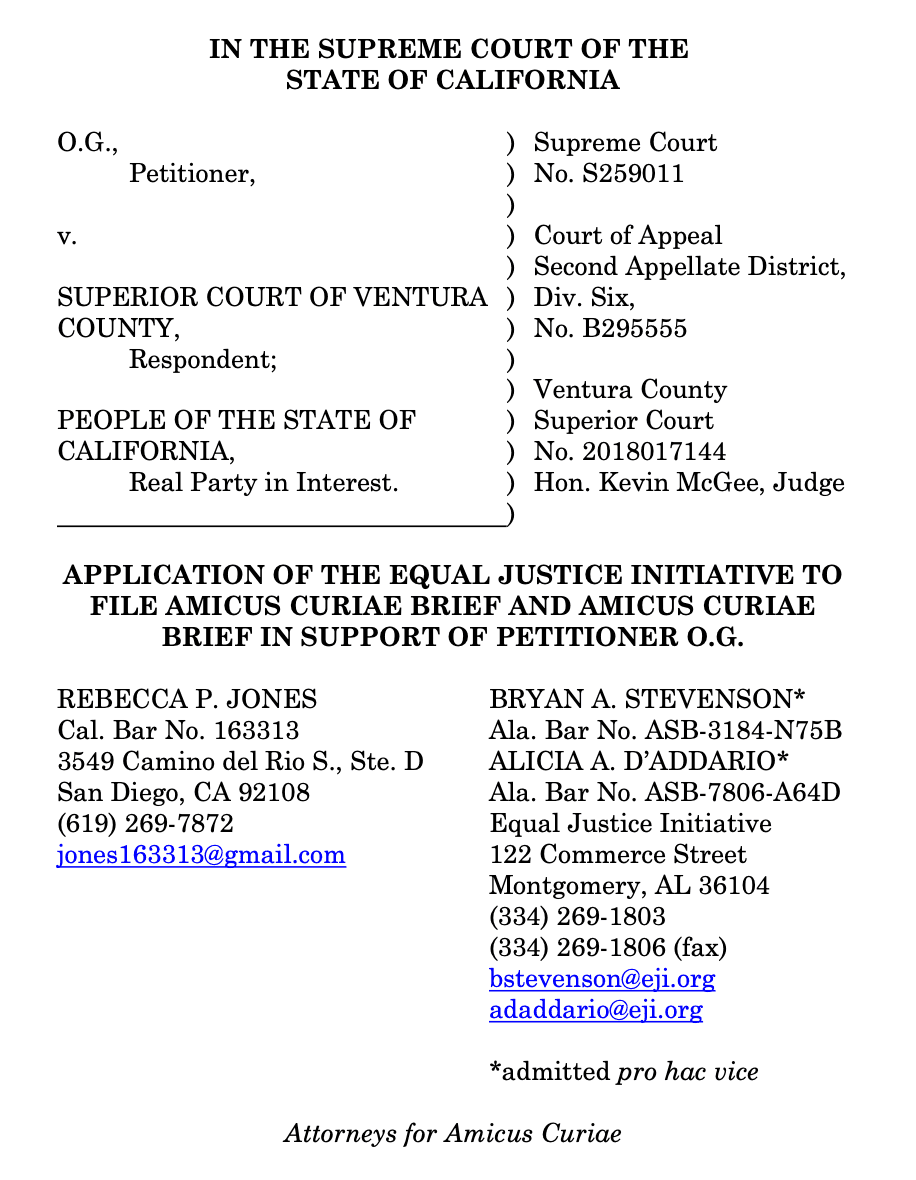
Summary of Argument
This case presents the question of whether Senate Bill No. 1391 (Stats. 2018, ch. 1012), which eliminated the possibility of transfer to adult criminal court for crimes committed when a minor was 14 or 15 years old, unconstitutionally amended Proposition 57. The characteristics of 14- and 15-year-olds demonstrate that preventing transfer of these youths to adult criminal court is consistent with and furthers the intent of Proposition 57. Scientific research has shown that young adolescents have immature judgment, underdeveloped capacity for self-regulation, particular vulnerability to negative influences and outside pressures, and heightened capacity for change. Consistent with this research, California law has long recognized the special vulnerabilities and deficiencies of young adolescents in numerous contexts. Because of these well-known characteristics of young adolescents, keeping young teens in juvenile court furthers Proposition 57’s goals of promoting public safety, emphasizing rehabilitation, and reducing wasteful spending on prisons, and is consistent with the transfer criteria within which Proposition 57 was enacted.